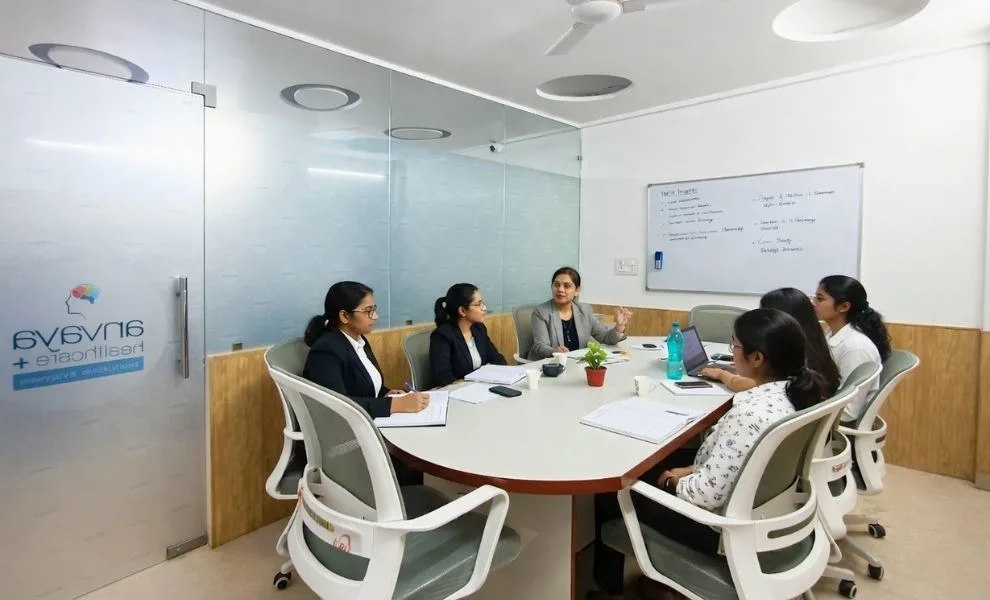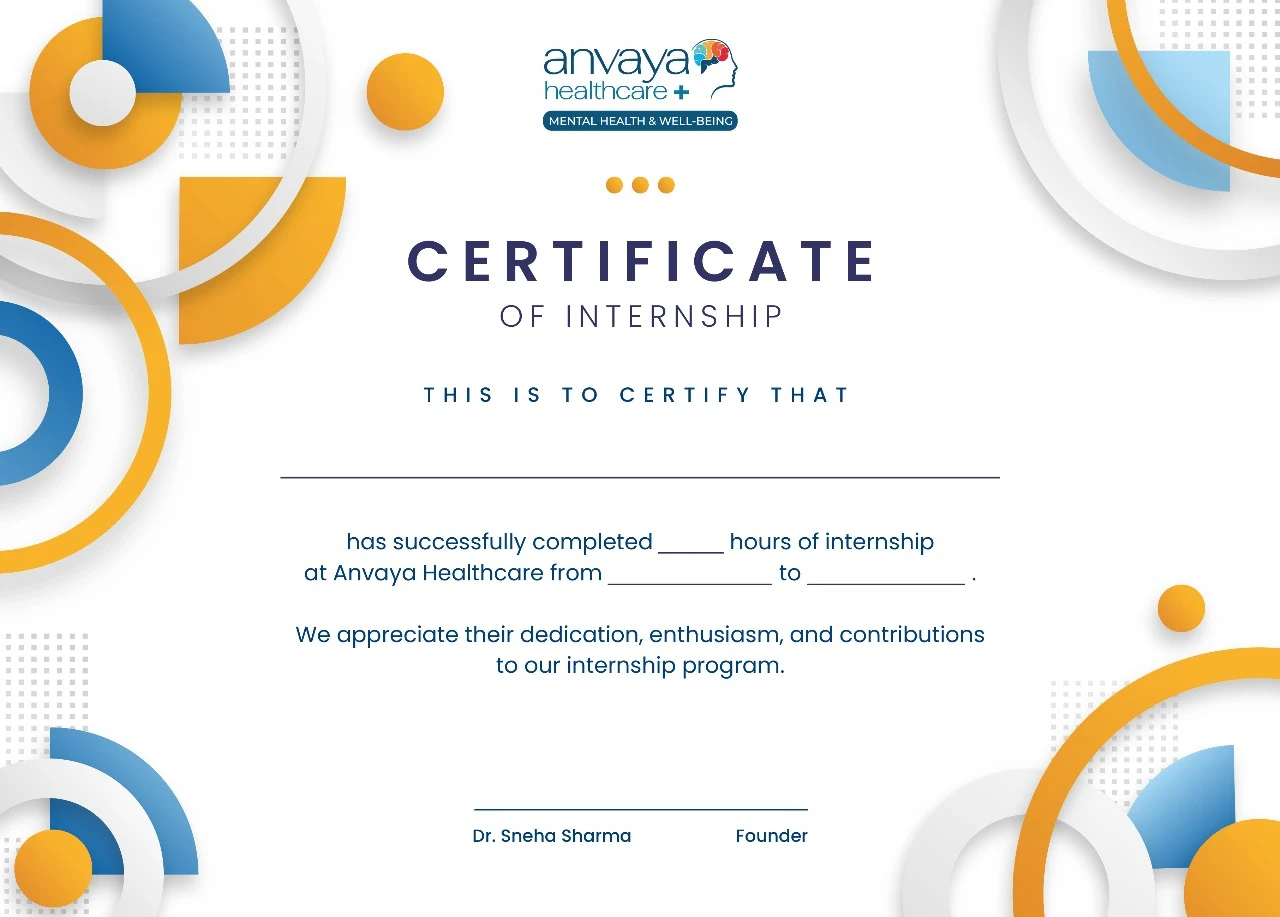
Are you a psychology student eager to apply your academic knowledge in a real clinical setting? Our Psychology Internship Program in Delhi offers a unique opportunity to gain hands-on experience under the mentorship of experienced psychologists. At our clinic, you will be exposed to various psychological assessment methods, therapy techniques, and patient care routines.
Anvaya Healthcare offers exclusive clinical and counselling psychology internships in Delhi, providing students with invaluable hands-on experience in a professional setting. Whether you’re an undergraduate looking for an internship in psychology or a graduate seeking to hone your skills, our internships are designed to help you grow in a clinical or counselling psychology role. Join us and embark on a journey that enriches your learning, boosts your career, and helps you gain real-world experience.
At Anvaya Healthcare, we understand the importance of practical exposure in the psychology field. Our internship program is meticulously structured to offer you comprehensive learning, from clinical settings to counselling psychology. You will have the opportunity to work alongside experienced professionals and gain practical insights into the intricacies of mental health, therapeutic techniques, and patient care.
Experienced Supervisors: Our mentors are certified professionals with years of experience in the psychology field.
Hands-on Learning: Interns get to engage in real-world clinical situations, developing skills that are essential for a successful career in psychology.
Comprehensive Exposure: From counselling patients to assisting in diagnostic assessments, our internships cover a wide range of experiences in the psychology field.
Practical Learning: Engage in real-life scenarios through mock therapy sessions, case discussions, and interactive practice.
Expert Guidance: Learn from RCI-certified, experienced practitioners who bring years of knowledge and expertise to the table.
Flexible Scheduling: Choose between 5 days/week (2 hours per day) or 2 days/week (3 hours per day) based on your availability.
Affordable Investment: Get the best value for ₹6000, with additional early bird and group discounts. Both online and offline modes are available.
| Duration | Fees (INR) |
|---|---|
| 2 hours for 05 days/week | ₹6,000 |
| 3 hours for 02 days/week | ₹6,000 |
Clinical Psychology Internships
Dive into the world of clinical psychology with a hands-on approach. These internships allow you to assist in patient assessments, therapy sessions, and behavioral analysis under the supervision of expert clinicians.
Counselling Psychology Internships in Delhi
Gain valuable experience in individual and group therapy, helping clients work through personal issues. These internships emphasize practical counselling techniques and psychological assessments.
Psychology Internships in Delhi Hospitals
Work directly within a hospital environment, gaining insight into the mental health issues faced by patients in a clinical setting. Interns work closely with healthcare teams to provide effective treatment and interventions.
Paid Psychology Internships in Delhi
We offer paid psychology internships in Delhi, ensuring that you get compensated for your hard work while learning and growing in the field. This is a great opportunity for students who want to gain financial independence while pursuing their passion.
Observe and participate in real mental health care settings.
Learn and grow with organized training sessions from experienced and qualified professionals.
Get the support and guidance of experienced mental health professionals.
Connect with fellow budding psychologists and Mental Health Professionals.
Construct a skill set as solid ground in the world of mental health care.

Here at Anvaya Healthcare, we aspire to provide future mental healthcare professionals with unparalleled educational resources. Fostering professional growth is the focus of our internship program, as well as preparing you for a rewarding career in mental health services.
Second floor, Plot No 28,
Sector-12A Rd, Block A,
Sector 12 Dwarka
Call Now: +91-9810659825
Ground Floor, Plot No. - E-7/5, Block E,
Vasant Vihar, Delhi
Call Now: +91-9650277301

1 in every 5 individuals
suffers from some form of mental health illness

